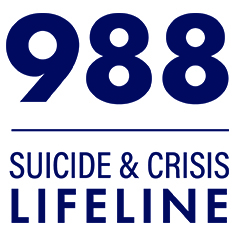The goal of the proposed ASU-SPARK (Suicide Prevention, Awareness and Reach through Kognito) is to prevent suicide in students at Alcorn State University, a Historically Black, and minority serving institution. This goal will be achieved by assessing the behavioral health needs of students, enhancing gatekeeper skills, creating awareness of behavioral health issues, reaching out to students in need and referring them for behavioral health services. Gate keeper skills of students, staff and faculty (campus community) at Alcorn State University (ASU) will be enhanced through a unique, cost effective, evidence-based at- risk training program provided by Kognito. The training program will serve a population including approximately 4000 students, 183 faculty and 303 staff population at ASU to identify psychological distress, increase help seeking behaviors, reduce stigma associated with mental health, and prepare them to approach, motivate and provide referral to those in psychological distress. Awareness of behavioral health issues and availability of behavioral health support services on campus, off campus and through the National Suicide Prevention Lifeline will be created through focus groups discussions, informational materials and Alcorn website. To strengthen the ASU counseling center, focused efforts will be made to review existing protocols, establish new protocols, and formalize collaborative linkages with local and state behavioral health agencies. In fulfilling the objectives of the project, support will be drawn from the various academic and administrative units on campus to make suicide prevention a campus wide effort.
Grantee Types: HBCU
Alabama State University
The Alabama State University (ASU) Suicide Project will target the 5500+ students on the ASU campus in Montgomery, Alabama. ASU is a HBCU with a primarily African American (90%) campus body. The Suicide Project will work through the gatekeepers on campus including student leaders, faculty and staff to provide training, information, awareness and education regarding mental health, substance use, suicide prevention and intervention.
The purpose of the ASU Suicide Project is to: reduce suicide attempts and deaths among college students on the ASU campus. To that end, the goals and objectives of the project are as follows:
GOAL 1: To reduce the incidence of attempted and completed suicides on the ASU campus while increasing protective factors that will assist in preventing suicide and their attempts.
Objective 1.1 To increase knowledge about suicide, risk factors, protective factors, and crisis response to ASU students, faculty and staff.
Objective 1.2 To create greater awareness and sensitivity to suicide and its stressors/risk factors among the ASU community (students, faculty, and staff).
Objective 1.3 To increase the capacity of the ASU campus faculty, staff and students to respond to persons contemplating and/or attempting suicide.
ASU will partner with local organizations specializing in these areas including the Council on Substance Abuse – NCADD, Montgomery Area Mental Health Authority and Alabama Disabilities Advocacy Program. In addition, ASU will contract with KognitoCAMPUS to provide suicide prevention and gatekeeper training on the ASU campus.
North Carolina Agricultural and Technical State University
Enhancing Services and Partners for Suicide Prevention: Aggie Gatekeepers
Clark Atlanta University
The Clark Atlanta University GLS Campus Suicide Prevention Initiative will help the University community develop a suicide protocol, provide suicide prevention training to school stakeholders and establish a network of community health professionals to expand our capacity to meet the mental health needs of our students. Clark Atlanta University (CAU) is a Historically Black, Private institution located in downtown Atlanta, Georgia. CAU is affiliated with the United Methodist Church and has a current enrollment of approximately 3600 students. The purpose of the proposed project is to integrate and coordinate suicide prevention activities across multiple sectors and settings within the Clark Atlanta University campus community. The student body is comprised of 45% in state students, 51% out of state students, and 4% international students. A large majority of international students on campus are originally from Saudi Arabia and have chosen to attend CAU through a partnership that exists between CAU and the Saudi government. Close to 80% of the International students have completed the coursework needed to speak, read, and write the English language. The student body is also 74% female and 26% male. Currently, no data regarding sexual orientation or gender identity is collected by CAU but anecdotally; there is a large population of students who identify as Gay, Lesbian, Bisexual, and Transgender. There are currently 50 students on campus with documented disabilities and approximately 30 students identified as receiving military benefits. The objectives of the proposed project are to:
(1) develop a suicide prevention plan that will engage students, faculty, staff and administrators; and
(2) establish a network of community health professionals to develop a sustainable campus-wide support structure to counter the prejudice, silence and denial that can prevent individuals from seeking help.
